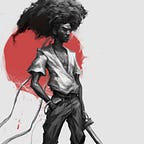Book Review: “On the Road” by Jack Kerouac
Spontaneous prose takes you on a trip across the United States
‘On the Road” by Jack Kerouac is the book that defined the "Beat Generation". The Beat Generation was a group of writers (American) in the 1950s who wrote about spirituality, drugs, and the madness of living life to the full. They were the precursors of the hippies who came in the sixties - hippies were just kids who grew up reading books like "On the Road" or the poem "Howl" by Allen Ginsberg.
On the Road is a roadtrip book, with several trips being taken by Jack Kerouac and his friends, particularly Neal Cassady (who is called "Dean Moriarty" in the novel) back and forth across America and even crossing the border into Mexico. It's a romantic novel in the sense of the wonderment the characters feel for the road and their experiences on it. It romanticizes travellling impulsively just for the sake of it. The characters are young and hungry for life experiences and enjoyment. Several older characters ask them what is the meaning of this travelling back and forth, what are they looking for? We wonder too as we read, what are they looking for? And when the book is over, you wonder, did they find it?
It’s kind of a sad ending, especially because we know that later on, years after the book was published, the hero of the novel (real life Beat writer Neal Cassady) committed suicide. A few days before he did it, Neal met Bukowski and Bukowski later wrote about it in his column "Notes of a Dirty Old Man". He said, "I met Kerouac’s boy Neal C. shortly before he went down to lay along those railroad tracks to die." And quite sadly he writes, "all those rides, all those pages of Kerouac, all that jail, to die alone under a Mexican moon, alone, you understand?"
This is not one of those novels that have a point. The events aren't leading anywhere. It's all just a series of random events happening to them on the road and the events keep coming and coming at a rapid speed and the effect of it makes you drunk with it or at times bored with the relentness of it, it's endless, kind of like the road itself.
The novel is at heart a Wild West adventure book, a series of picaresque tales about a pair of cowboys exploring the wild country, only they are not cowboys and the country is not wild. The country they are really exploring is the soul, they are spiritually-inclined and are trying to get at something ineffable with all their going and doing and seeing and meeting and partying.
It reminded me of the Great Gatsby as well. Just as that was a novel written by an opinionated narrator about an intriguing hero, On the Road is a novel written by an opinionated narrator (Kerouac's "Sal Paradise") about an intriguing hero (Neal Cassady's "Dean Moriarty"). And as real life later showed, Dean Moriarty was just as tragic as Jay Gastby.
Dean is a wild, crazy, irresponsible saint, conman - that's how Keroauc wrote him. He's not of this world, but yet he is wholly of it. People who meet him either dislike him or are in awe of him, no middle ground. The whole novel is like a love letter to him, or rather to what he represents: freedom. And it is the search for freedom that makes Sal Paradise and Dean get on the road. Dean is one of the most fascinating characters in literature and the fact that he is based on a real life fascinating character makes him even more fascinating. He's one of those people who is free to be themselves and do whatever they want, which is liberating to people hanging out with him but also at some point infuriating or exhausting. How you react to him says more about who you are than it does about him.
I used to read about the Beat writers in Bukowski’s work and at the time I was such a Bukowski fan and took his word for it that they weren’t all that. But reading this book made me more curious about them and about their work because this is a great read and the people it tells about are fascinating. People like Allen Ginsberg who wrote the famous poem "Howl" and William Burroughs who wrote "Junky" and "Naked Lunch".
I have always dug the idea of literary movements, of a bunch of writers or artists hanging out and sharing ideas and helping each other out and creating a massive impact on society on the strength of their community and the freshness of their work and the power of their ideas. It was interesting to read this book about this original hippies being all hippie while living in an America that is still very conservative (just after World War II).
And Jack Kerouac is a great writer. I didn’t know. He reminds me of Henry Miller - another writer of episodic, relentless adventures in city haunts.
